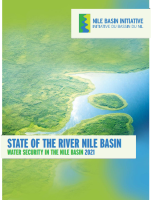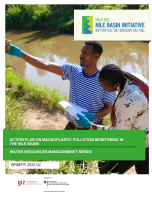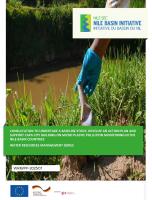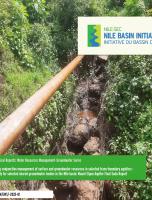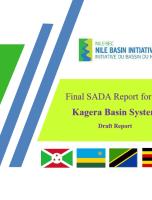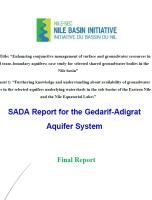Abstract
Water security is the focus topic of this State of the Basin report. It is commonly defined as ‘the capacity of a population to safeguard sustainable access to adequate quantities of acceptable quality water for sustaining livelihoods, human well-being, and socio-economic evelopment, for ensuring protection against water-borne pollution and water-related disasters, and for preserving ecosystems in a climate of peace and political stability’ (UN Water, 2013). The underlying concept of water security is intersectoral and multi-dimensional, while water security also varies by country and even by location. Further, some measures taken to increase water security in one part of the Basin may reduce it in other parts. Hence, assessing the status of water security of the diverse and large Nile Basin is complicated and cannot be covered by a few simple indicators. This report, therefore, has attempted to base the water-security analysis of the Nile Basin as much as possible on quantitative analysis and a broad range of indicators. The principal factor in the discussion on water security is water for agricultural production, as agriculture is by far the largest consumer of the renewable Nile waters. Food security for urban areas could, theoretically, be achieved through agricultural trade or imports from outside the Basin. But not so for rural areas; food security
for the large rural population will depend on local produce. Additionally, there is a strong relation between agricultural modernisation – which requires secure water supply – and rural development.
The link between water security and energy security in the Nile Basin is caused by the preference of several Nile countries for hydropower. Energy security, in turn, is closely related to environmental sustainability, as a large share of the rural and urban population continues to rely on charcoal as their primary source of energy, with devastating environmental consequences. Land degradation will impact on the hydrological cycle and the timely availability of water resources, thereby closing the loop. Environmental sustainability in the Basin is also closely related to water security. The water-related ecosystems in the Basin, especially wetlands and catchment forests, provide crucial functions for water security: they retain floods, store water for periods of drought, and purify water as it passes through them. But use of the water for agricultural and energy production, and the pollution of that water, is threatening these same ecosystems.
Water security concerns are exacerbated by climate change. It will probably affect every aspect of water security, but its exact implications and magnitude are yet undefined. Lastly, efforts to ensure water security in the Nile Basin are complicated by the transboundary dimension. It is within the above context that this chapter synthesises the findings of the
water-security analysis in the Nile Basin.
